 Skills development for workers in the global south
Skills development for workers in the global south

- Japanese / ENGLISH
- JapaneseENGLISH
Project Members
SKY[Skills and Knowledge for Youth] home Project Members
Members

Professor , Project Leader Shoko Yamada
My field of specialization is education and human resources in developing countries, particularly in Africa. I propose policy measures to improve the capacities of people for productive lives and wellbeing, through comprehensive analysis of skills and knowledge to be acquired in school and through work.
Main article / book
1. Yamada, Shoko, Akira Takada, and Shose Kessi (Eds)(2021). Knowledge, School, and Social Structure in Africa. Bamenda: Langaa publishing.
2. Yamada, Shoko and Christian Otchia (2020). “Perception Gaps on Employable Skills between Technical and Vocational Education and Training (TVET) Teachers and Students, and Their Causes: The Case of the Garment Sector in Ethiopia”. Higher education, skills, and work-related learning.
3. Yamada, Shoko, Christian Otchia, and Kyoko Taniguchi (2018). “Explaining differing perceptions of employees’ skill needs: the case of garment workers in Ethiopia,” International Journal of Training and Development. Vo. 21, Issue 4 pp51-68.
4. Yamada, Shoko (Ed) (2016). Post-Education-For-All and Sustainable Development Paradigm: Structural change and diversifying actors and norms. London: Emerald Publishing. pp. 392.
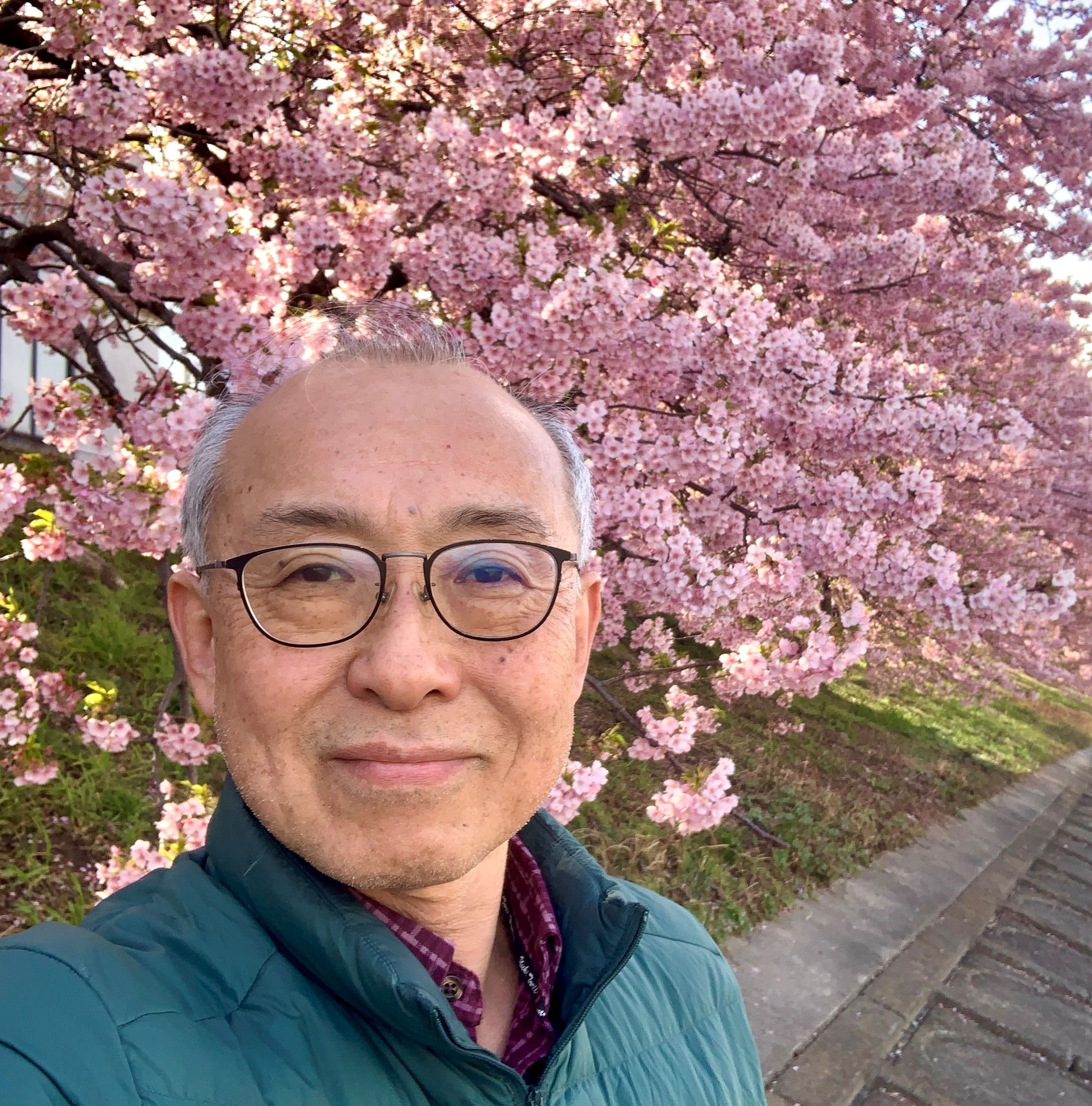
Coordinator Takahiro Hayakawa
To promote and progress the SKY Project, I am assisting the team members
and research project itself. Please feel free to contact me whenever you have
any interest, queries, or suggestions!
Main article / book

Designated Assistant Professor Emmanuel Estrellado
I am a designated assistant professor assigned to the SKY Project. My research interests include innovative teaching and learning tools that will help enrich the instruction and learning of secondary students in developing countries.
Main article / book
1. Estrellado, E., Charoensilp, P., & Yamada, S. (2023). The effects of game-based soft skills training: A quasi-experiment with Ethiopian garment workers. International Journal of Educational Development, 101, 102823. https://doi.org/10.1016/j.ijedudev.2023.102823
2. Estrellado, E. L. (2023). Development and Utilization of Comic-Based Physics Modules for Secondary-Level Students in the Philippines. Forum of International Development Studies, 54(2). https://doi.org/10.18999/forids.54.2

Research Assistant Pimmada Charoensilp
I am studying for a Ph.D. at Graduate School of International Development, Nagoya University.
My research interests are mainly intercultural sensitivity, teacher training, and education for migrants and children with minority background. Recently, I am studying about non-cognitive skills and lifelong learning.
Main article / book
1. Estrellado, E., Charoensilp, P., & Yamada, S. (2023). The effects of game-based soft skills training: A quasi-experiment with Ethiopian garment workers. International Journal of Educational Development, 101, 102823. https://doi.org/10.1016/j.ijedudev.2023.102823

Research Assistant Mark Kenneth Camiling
I am Mark Kenneth Camiling from the Philippines, a Ph.D. student at Nagoya University Graduate School of International Development under the supervision of Prof. Shoko Yamada. My research interest is the integration of health education and educational technology, particularly in the emerging study of eHealth literacy among the youth.
Main article / book
1) Camiling, M. K. S. (2019). eHealth Literacy of High School Students in the Philippines. IAFOR Journal of Education, 7(2). https://doi.org/10.22492/ije.7.2.04
2) Camiling, M. K. (2017). The Flipped Classroom: Teaching the Basic Science Process Skills to High-Performing 2nd Grade Students of Miriam College Lower School. IAFOR Journal of Education, 5(SI). https://doi.org/10.22492/ije.5.si.10
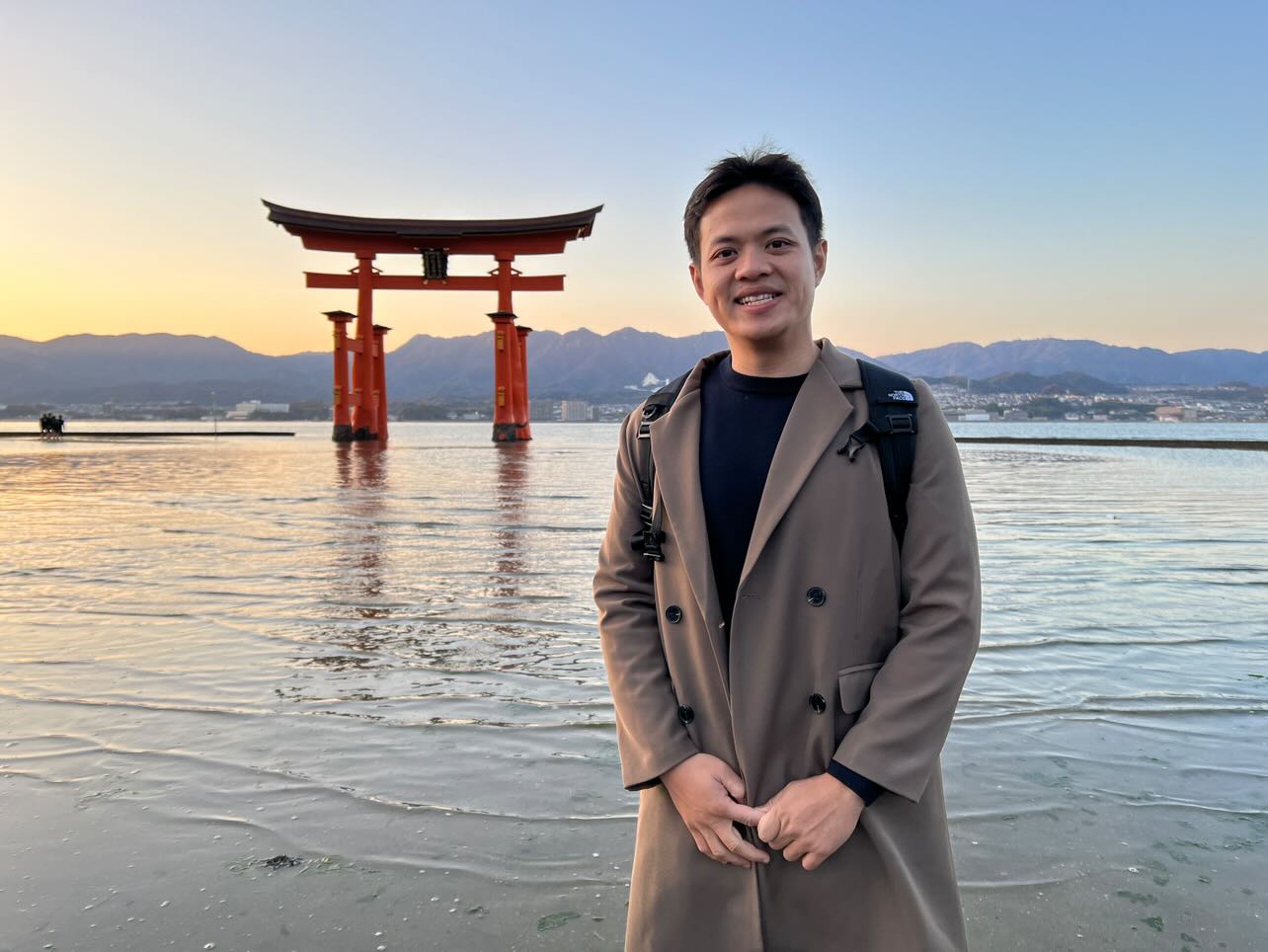
Research Assistant Hun Seyhakunthy
I am currently a Ph.D. student in education and human resource development at Graduate School of International Development, Nagoya University. My research interests encompass economics of education, education finance, higher education expansion, and skill gaps and mismatches.
Main article / book
1) Chea, Phal, Seyhakunthy Hun, and Sivkim Chheam. 2020. “Disruption and Opportunities during the COVID-19 Pandemic in Cambodian Higher Education: Perspective from Teaching Staff.” Cambodia Development Review 24 (4): 1–7.
2) Chea, Phal, Seyhakunthy Hun, and Sopheak Song. 2022. “Blurred Identities: The Hybridisation of Post-Secondary Education and Training in Cambodia.” Research in Post-Compulsory Education 27 (2): 175–97.
3) Chea, Sathya Sathaya, Sopheak Song, and Seyhakunthy Hun. 2020. “Competency-Based TVET in Cambodia: Promise and Reality.” CDRI Working Paper Series No. 124. Phnom Penh.
4) Hun, Seyhakunthy, Sopheak Song, and Phal Chea. 2020. “No Dead-End Ahead: Permeability Pathways between Tertiary Vocational Education and Training and Academic Education.” Cambodia Development Review 24 (3): 1–6.

Associate Professor, Graduate School of International Development, Nagoya University Christian Otchia
My research interests lie in the areas of political economy, labor economics, and economic development. My general approach is to develop and use economic models to study how industrial policy affects the relationship between economic growth and structural change in developing countries. Currently, my main research is on skills development, vocational training, and enterprise development.
Main article / book
1. Otchia Christian S. (2021). Returns to Educational Attainment in Urban Ghana: The Role of Job-to-Job Transition. Progress in Development Studies, Vol 21, Issue 1,51-672021. https://doi.org/10.1177/14649934211003464
2. Otsubo Shigeru and Christian S. Otchia (eds) (2020). Designing Integrated Industrial Policies Volume I & II. London: Routledge
3. Otchia Christian S. and Asongu Simplice (2020). Industrial growth in sub-Saharan Africa: evidence from machine learning with insights from nightlight satellite images.(With Simplice Asongu). https://doi.org/10.1108/JES-05-2020-0201
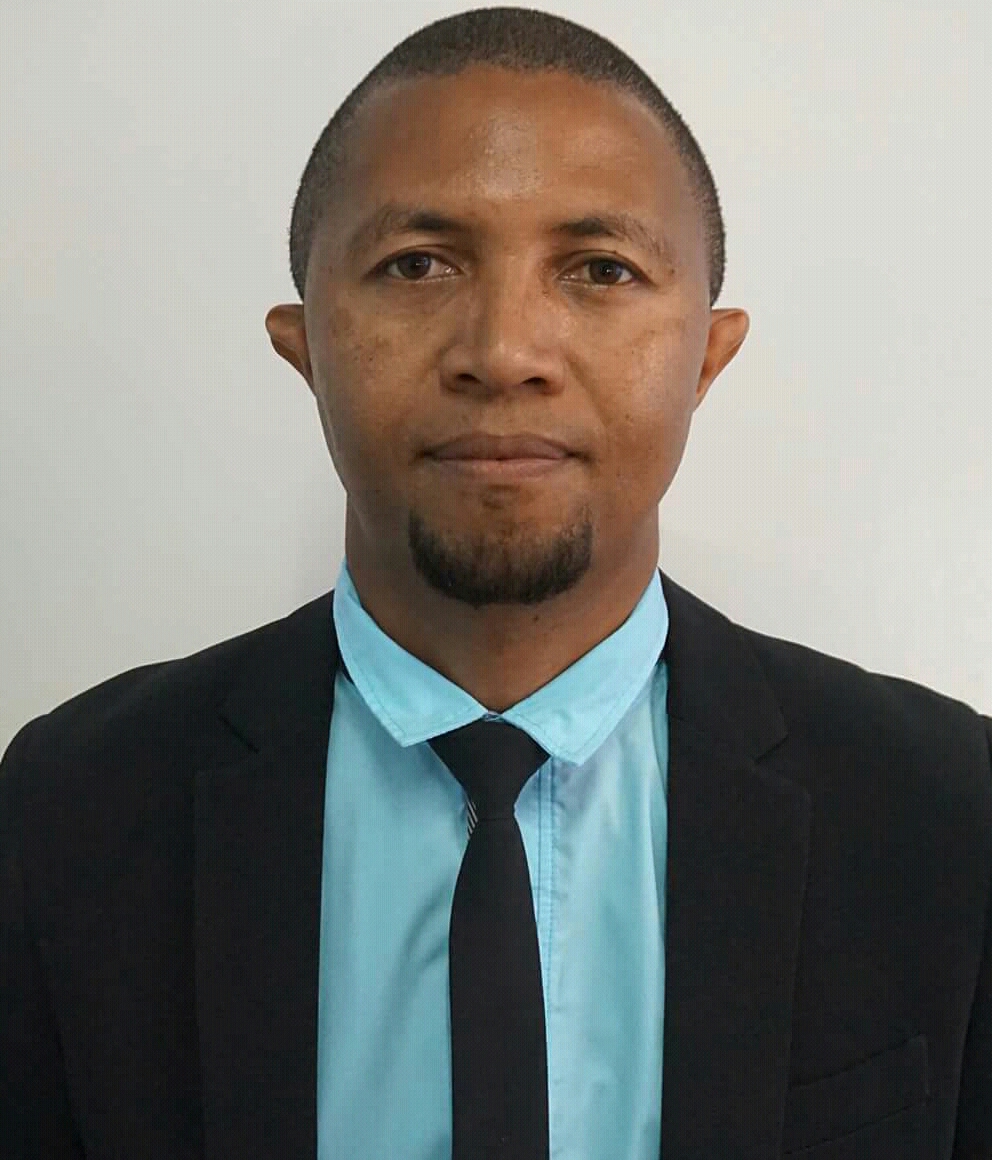
Research Assistant Francia Randriatiana
I am currently pursuing my doctoral studies in education and human resource development at the Graduate School of International Development, Nagoya University. My research interests focus on educational reforms mainly curriculum innovation and implementation issues in developing countries, particularly in Africa.
Main article / book
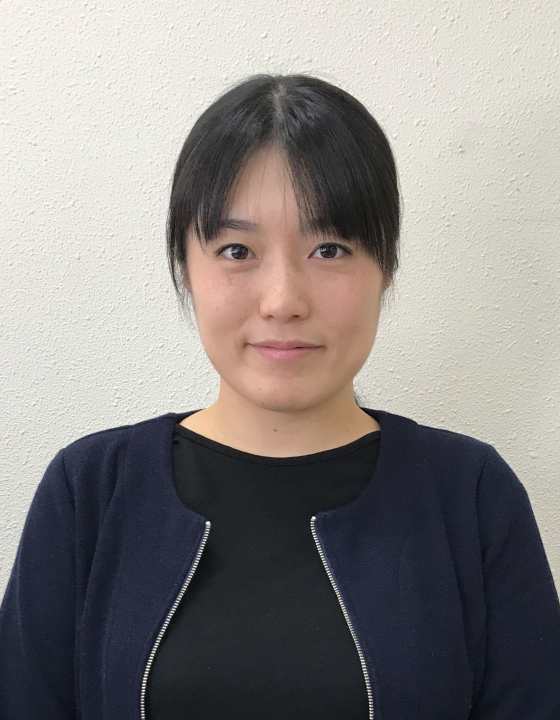
Assistant Professor, Graduate School of International Development, Nagoya University Yuki Shimazu
Sociology of Education and Africa Studies. She has researched on (1) Gender education in the training program for agricultural extension workers in Ethiopia, (2) Social/cultural factors affecting teachers’ implementation of curriculum, and (3) Industrial skills development in Africa.
Main article / book
1.Establishing Linkage between Formal TVET and the Local Labor Market in Ethiopia: The Strategy Implementation and Challenges of Formal TVET Institutions, Yuki Shimazu , Africa Educational Research Journal , 5, pp.134-148, 2014.

Designated Assistant Professor of Applied Social System Institute of ASIA, Nagoya University Natsuki Kondo
I’m interested in understanding the complexity and dynamics of African societies from structure and agency relationships and also interested in the methodological aspects. Area: Critical pedagogy, collective action and social movement theory, life story.
Main article / book
1. Natsuki KONDO. 2018. Theoretical and Analytical Framework to Capture Social Movements in Developing Countries from Actor’s Perspective: Approach to the Meaning of Action through Life Stories. Forum of International Development Studies, 48(4), 1-16.
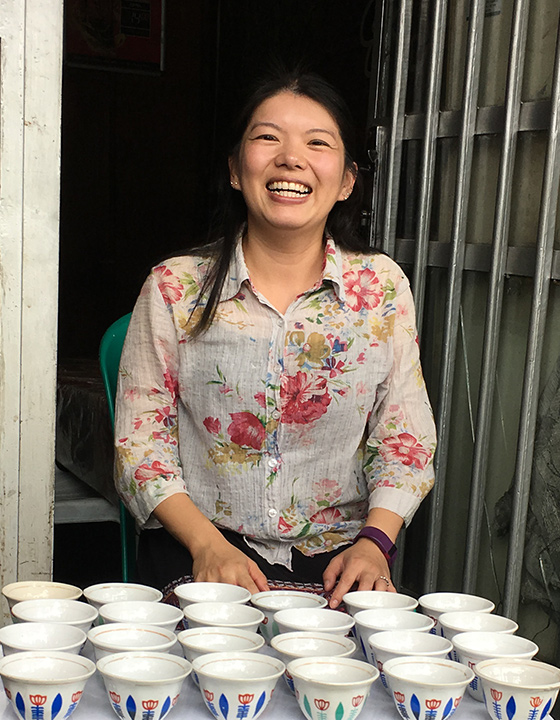
Hiroshima University Graduate School of Humanities and Social Sciences Associate Professor Kyoko Taniguchi
My major is educational development in developing countries. Mainly I have been focusing on doing school effectiveness research, measuring student achievement, and analyzing factors influencing grade repetition, dropout and transfer. Recently, I am also studying technical vocational education and training (TVET).
Main article / book
1.Yamada, S., Otchia, C., and Taniguchi, K. (2018). “Explaining differing perceptions of employees’ skill needs: the case of garment workers in Ethiopia,” International Journal of Training and Development. 21 (4).
2.Yamada, S., Taniguchi, K., Otchia, C. (2016). Policy Brief: Expected and Actual Skills of Young Workers in the Garment Industry of Ethiopia. Nagoya University. http://www.gsid.nagoya-u.ac.jp/syamada/index.html.
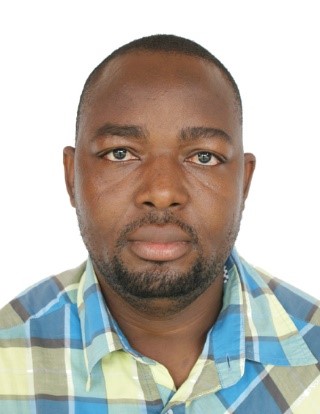
Ghana liaison of the Skills and Knowledge for Youth (SKY) project of the Nagoya University, Japan. Philip Aniah
I am currently a doctoral candidate at the Institute of Statistical, Social and Economic Research (ISSER), University of Ghana, Legon. I am also the Ghana Liaison of the SKY-project. My research interest since my graduate training has been on environmental governance and poverty reduction. My research interest is currently shifting to skills gap analysis of informal sector (Agriculture) workers in Africa. I co-founded a local organization (CALSEG-Ghana) that provides skills training for youth and women.
Main article / book
1. Aniah P. et al. (2019). Smallholder farmers' livelihood adaptation to climate variability and ecological changes in the savanna agro ecological zone of Ghana. Heliyon, 5(4), e01492.
2. Aniah P. et al. (2017). Environment, Development and Sustainability of Local Practices in the Sacred Groves and Shrines in Bongo District: A Bio-cultural study for Environmental Management in Ghana. Environment, Development and Sustainability. DOI 10.1007/s10668-015-9728-9.
3. Aniah P. et al. (2016). Learning from the past: The role of sacred groves and shrines in environmental management in the Bongo district of Ghana. Environmental Earth sciences. 75:1-9 DOI 10.1007/s12665-016-5706-2.
Advisors
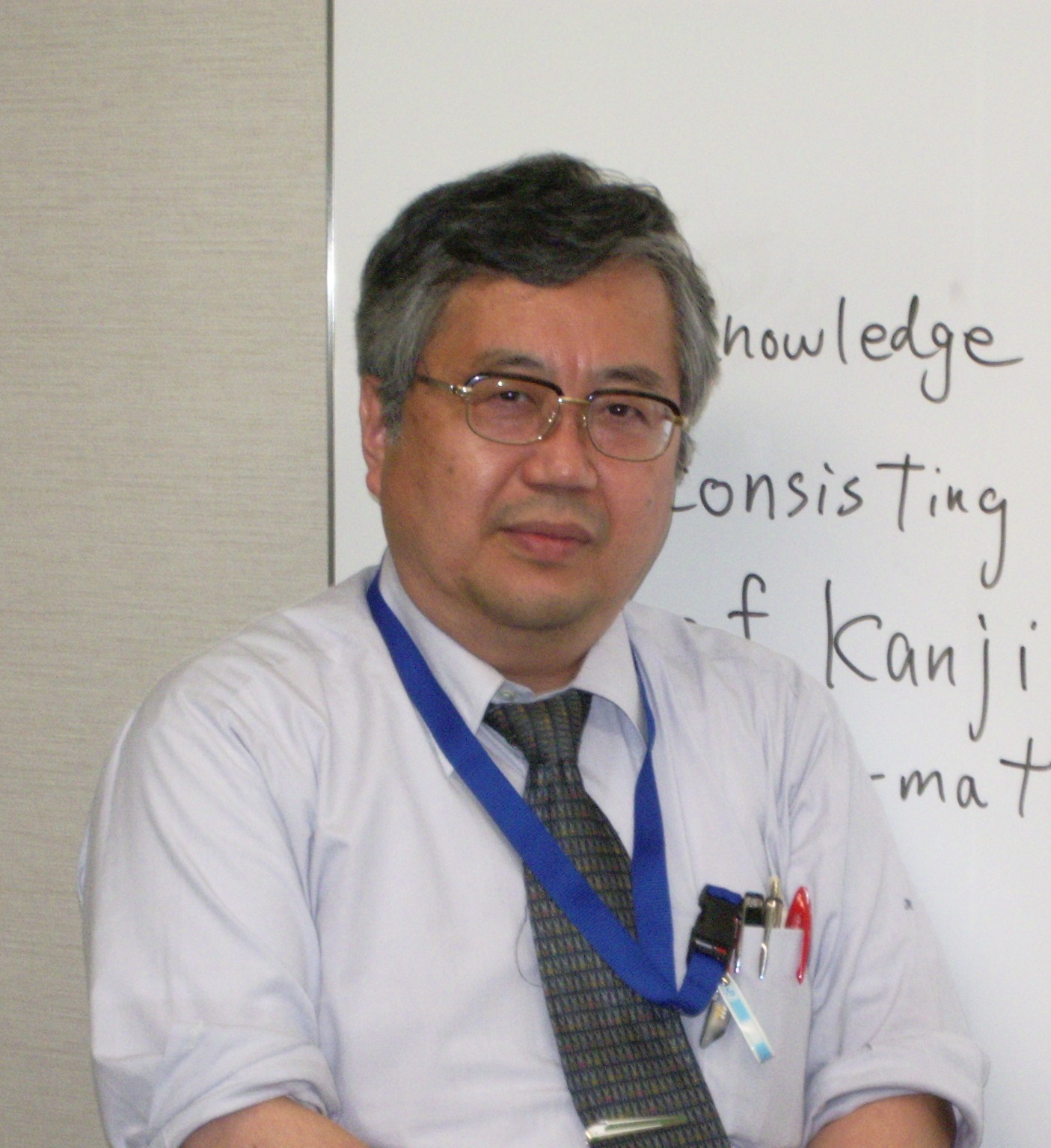
Visiting Professor Hiroyuki Noguchi
My starting point as a researcher was “Test Theory”. In time, my interest became the theme around what needs to be done when applying the item response theory to a large-scale linguistic test. Currently I am researching about how to adapt CEFR (Common European Framework of Reference for Languages: Learning, teaching, assessment) in Japanese language settings and what supporting information is needed.
Main article / book
1.Shimada,M. & Noguchi,H.(2017). Introduction to Statistical Analysis for Japanese Language Education, Hitsuzi Shobo, Tokyo, Japan (in Japanese).
2.Noguchi,H. & Osumi,A. (2014). Introduction to Fundamental Test Theory and Application for Language Testing. Kenkyusha, Tokyo, Japan.
3.Noguchi,H.(2016).Test Standardization and Equating. JLTA Journal 2016 Supplementary : 20th Anniversary Special Issue,19,81-89.
4.Sakai,W.& Noguchi,H.(2015).Comparison of Tests of Mental Health for Student Counseling : Formation of a Common Measure. Japanese Journal of Educational Psychology,63,111-120. (in Japanese with English abstract).
5.Noguchi, H. & Kumagai, R. (2012). Estimation of Equating Coefficients Using Estimated Population Distribution in Common Examinees Designs. Japanese Journal for Research on Testing, 8, 9-18. (in Japanese with English abstract).
6.Noguchi, H. & Kumagai, R. (2011). A Correction for the Mean and Sigma Method in Common Examinees Designs. Japanese Journal for Research on Testing, 7, 15-22. (in Japanese with English abstract).

Professor, Graduate School of Asian and African Studies, Kyoto University Motoki Takahashi
I am interested in how African people’s economic activities, their way of lives and way of thinking interact with aid, and how they develop. My research is based on the knowledge of Development Economics, Political Economy, and African Area Studies.
Main article / book
Contemporary African Economies: A Changing Continent under Globalization African Development Bank (2016); “The Peculiarities of Japan’s ODA and the Implication for African Development”in André Asplund and Marie Söderberg eds. Japanese Development Cooperation: the Making of an Aid Architecture Pivoting to Asia Routledge. pp. 19-40 (2017); “National Integration, Political Violence and People’s Livelihoods: Conflicts and Coexistence in Rural Kenya” in Gebre Yintiso Deko, Itaru Ohta and Motoji Matsuda eds. African Virtues in the Pursuit of Conviviality: Exploring Local Solution in Light of Global Prescriptions. Langaa, pp.171-204 (2017) and other numerous books and articles

Chief Researcher, The Japan Textiles Importers Association. Team leader, JICA Pakistan Apparel Project. Advisor, PQC Corporation; Japanese textile inspection companies,Bangkok,Thailand. Yasuhiro Shoda
In ODA: Official Development Assistance and inter-state cooperation project for nurturing apparel industries in Asia and Africa countries, I have conducted production management and quality control seminars about 50 times and factory technical guidance at about 450 companies.
Former Professor, Bunka Gakuen University and Bunka Fashion College Tokyo, JAPAN
Main article / book
1.“The future of spreading ASEAN's sewing industry.” Journal of The Japan Research Association for Textile End-users, Vol.58,2017
2.“Quality Management in the Asian Apparel Industry(1),(2),(3),(4).” Journal of Bunka Women's University, Studies on fashion science & art design, No.37・38・39・40,2006,2007,2008,2009
3.“Apparel Production Design.” Bunka Fashion College 2005
4.“Apparel Quality Management.” Bunka Fashion College 2005
